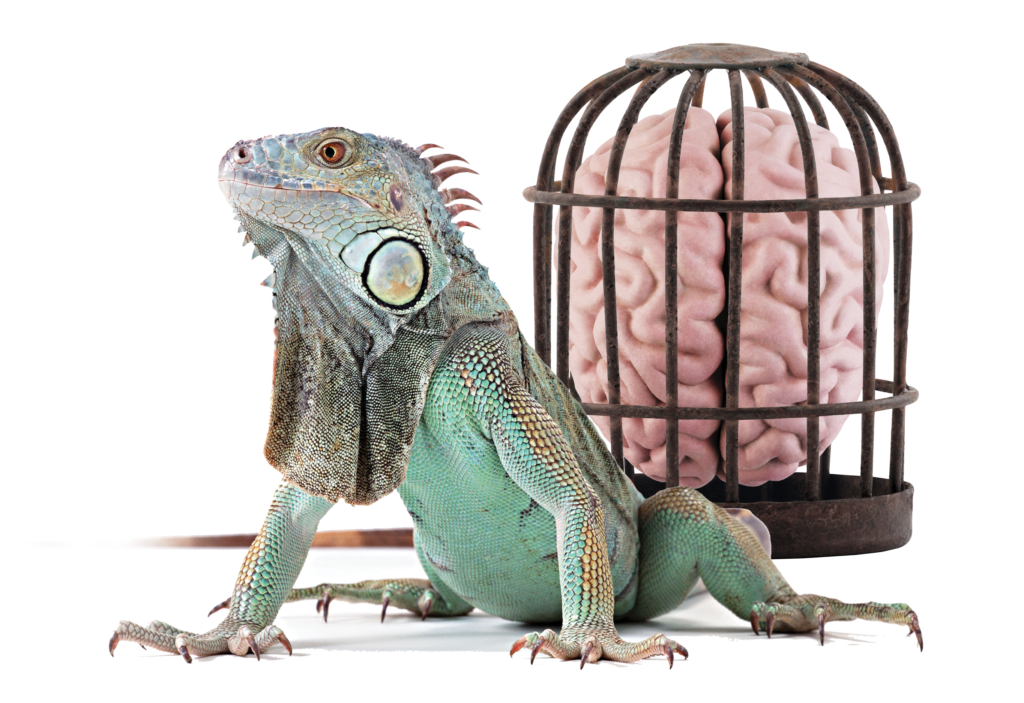By David W Evans BSc and Dr Agnes Chlebinska
We look at how to be a more successful you.
Why a high IQ only accounts for 20% of your achievements
Whether we like it or not, all of our decisions are dependent on our emotions. This is a basic neurophysiology of our brain that comes from the most basic survival instinct. As such, knowing how to control our emotions is of great importance in making better decisions, which will then help us succeed in our endeavors and live life more fully and enjoyably.
The concept of emotional intelligence (EQ or emotional IQ) was introduced in the 1960s; however, it took almost 40 years before the significance of EQ became widely recognized. In the last decade, international scientific research has proven that IQ is responsible for only 20% of our achievements and our successes in life, and 80% of them depends on our EQ. In other words, you either increase your EQ or you are doomed to mediocrity at best.
What does emotional intelligence actually do?
In the simplest terms, EQ controls our amygdala and other centers of our brain, which are responsible for fear, anxiety, feelings of insecurity, feelings of emotional hurt or of being treated badly, and so on.
Why is it important?
Our logic goes out of the window and our IQ drops to suboptimal levels when our emotions run high.
Examples of high vs lower emotional intelligence in real life
When you possess high EQ, one thing you very rarely or never do is let your environment influence your decisions. No matter what your friends, family, colleagues, or the rest of the world thinks, if you are certain of an outcome, you won’t allow anyone to take you off the right course.
One of my favorite examples of high emotional intelligence is Nelson Mandela who, instead of wasting 28 years in prison exercising hate and self-pity, exerted his physical, mental, and emotional strength and came out as one of the greatest leaders of all time. Most of you may think that he is one man, that he is unique, but this is of course not the truth. We all have 100 billion brain cells and we all can process around 400 billion actions per second. Therefore, there is very little we can’t really do, especially if another human being has already proven that it can be done. The choice is entirely ours, 80% of which depends on our EQ.
What is emotional intelligence?
In the simplest terms, emotional intelligence is recognising, understanding, and controlling your emotions as well as the emotions of others. And of course, there are many layers to it. It involves emotional competencies: self-awareness (knowing your emotional states); healthy self-esteem (knowing your strengths and weaknesses and being comfortable with them); and self-regulation (having control over your emotions and responding consciously to external factors). By understanding your own emotions, you will also learn to understand the behaviors and responses of others, which will allow you to observe them as “a witness” without taking things personally and responding defensively.
Emotional intelligence is not just about knowing and controlling your own emotions, however. It also has a social layer to it, which involves: empathy (understanding other people’s emotions); assertiveness (owning up to your opinions and beliefs even though they don’t belong to the majority); persuasion (being able to elicit certain actions and behaviors in others); leadership (being able to come up with ideas and engage others in their ideas); and cooperation (being able to work with others to achieve a common goal).
If you take a look at the components of emotional intelligence, it must become clear to you why they are the ones needed to succeed, not just in our professional lives, but also in our personal lives and relationships.
The lizard brain
To understand emotional intelligence more fully, it is also important to know that we have this so-called lizard brain; neural networks in our brain from the dinosaur times. This lizard brain helped our ancestors stay away from threats; they survived because of it. In our modern times, we don’t have to run away from tigers and lions anymore, yet the lizard brain works as if we are still living in the jungle. Other than fear, it is also the source of other negative emotions, such as anxiety, doubt, low self-esteem, and all the bad memories connected to these feelings we might have accumulated throughout our life. The lizard brain may perceive talking in front of a crowd of people or being shouted at by your boss to be as life-threatening as getting attacked by a huge animal. In fact, public speaking is one of the most common phobias of our times. Of course, neither the crowd nor the angry boss will eat us, but our brain still initiates over 1400 chemical and physical responses to fear or other forms of stress.
This means that if we don’t have control over the lizard parts of our brain, we will avoid most of the challenges in life because they will be always associated with taking a risk. Without high EQ, we simply spend living our lives in constant fear or anxiety of losing something or someone. Consequently, we are stopping ourselves from living to our full potentials, including our health, relationships, growth, and fulfilment. And this is where the importance of developing our emotional intelligence sets in.
You may ask, what about IQ?
Well, research has shown that your emotional intelligence affects your IQ and performance in general. Multiple studies have shown that people who are more emotionally intelligent tend to perform better on cognitive tasks and solve more problems.
Furthermore, EQ is more important than IQ when it comes to professional success as suggested by the analysis of Egon Zehnder, a global executive search firm, of 515 senior executives. It was found that senior executives who did very well in terms of emotional intelligence were more likely to succeed than those whose strong point is in terms of their relevant previous experience or high IQ.
With practice, you can increase your emotional intelligence and have more success in your professional and personal lives, but the most important thing is that by increasing your EQ, you will significantly reduce your fears and therefore your stress levels. Stress is one of the biggest health problems of our times as it leads to obesity, diabetes, heart disease, stroke, cancer and more.






